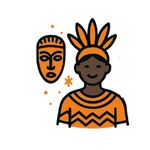
Public holidays in South Africa reflect the country’s history, cultural diversity, and focus on national unity. Governed by the Public Holidays Act (Act No. 36 of 1994), the calendar includes 12 official public holidays each year, with a provision that shifts holidays falling on a Sunday to the following Monday. These days mark key historical events and honour those who shaped the nation. Alongside official holidays, there are also widely recognised observances that, while not legally designated, are acknowledged across the country.
Key Takeaways
- South Africa Has 12 Official Public Holidays in 2025: These are regulated by the Public Holidays Act, Act No 36 of 1994. If a public holiday falls on a Sunday, the following Monday is recognised as a public holiday by law.
- Major Holidays Commemorate Key Moments in South African History: Days like Human Rights Day, Youth Day, and Freedom Day are rooted in significant political events, such as the Sharpeville Massacre and the 1976 Soweto Uprising.
- Employees Working on Public Holidays Are Entitled to Extra Pay: If an employee works on a public holiday, they must receive either double pay or their usual wage plus the pay for hours worked. Those not working must still be paid their normal daily wage.
About Arcadia Finance
Get the right loan with Arcadia Finance. Skip application fees, access 19 trusted lenders registered with the NCR, and benefit from a streamlined, dependable service.
South Africa officially recognises 12 public holidays, which are governed by the provisions of the Public Holidays Act, Act No 36 of 1994. According to the Act, if a public holiday falls on a Sunday, the next day, being a Monday, is automatically declared a public holiday.

Public Holidays in South Africa for 2025
These are the official public holidays observed throughout South Africa in 2025:
| Holiday | Date | Day |
|---|---|---|
| New Year’s Day | 1 January 2025 | Wednesday |
| Human Rights Day | 21 March 2025 | Friday |
| Good Friday | 18 April 2025 | Friday |
| Family Day | 21 April 2025 | Monday |
| Freedom Day (observed on 28 April) | 27 April 2025 | Sunday |
| Workers’ Day | 1 May 2025 | Thursday |
| Youth Day | 16 June 2025 | Monday |
| National Women’s Day | 9 August 2025 | Saturday |
| Heritage Day | 24 September 2025 | Wednesday |
| Day of Reconciliation | 16 December 2025 | Tuesday |
| Christmas Day | 25 December 2025 | Thursday |
| Day of Goodwill | 26 December 2025 | Friday |
Other Notable Dates in 2025
The following dates are commemorative occasions and widely acknowledged in South Africa, though they are not official public holidays:
| Event or Observance | Date | Day |
|---|---|---|
| Armed Forces Day | 21 February 2025 | Friday |
| Mother’s Day | 11 May 2025 | Sunday |
| Father’s Day | 15 June 2025 | Sunday |
| Nelson Mandela Day (events take place throughout the month) | 18 July 2025 | Friday |
| New Year’s Eve | 31 December 2025 | Wednesday |

Information on Public Holidays in South Africa

1 January, New Year’s Day
New Year’s Day marks the beginning of the calendar year and is observed across South Africa as a national public holiday. Falling during the peak of the summer season, it is often celebrated with family gatherings, beach visits, fireworks, and social events. Many people use the day to reflect on the past year and set personal or professional intentions for the months ahead.

21 March, Human Rights Day
The Bill of Rights, as set out in the Constitution, forms the foundation of South Africa’s democratic structure.
The Constitution made provision for the creation of the South African Human Rights Commission (SAHRC), whose role is to encourage respect for human rights, support their protection and development, and evaluate how well human rights are upheld across the country. The SAHRC was officially launched on 21 March 1996, marking 35 years since the tragic events in Sharpeville on 21 March 1960, where police opened fire on protestors, killing 69 people and injuring 180 others.
The Native Laws Amendment Act of 1952 gave the government more control over the movement of Black South Africans into urban areas. It did away with the Pass Book system and introduced a reference book which Black citizens were required to carry at all times.
If a person failed to produce the reference book when requested by the police, they faced immediate arrest and could be prosecuted under the pass laws. In response to these oppressive measures, the Pan Africanist Congress (PAC) organised a nationwide protest for 21 March 1960, calling on all Black men to deliberately leave their passes at home and present themselves at local police stations, effectively inviting arrest to challenge the system.
In townships near Johannesburg, demonstrators went to police stations. At the Sharpeville station, tension escalated, and after a section of the fence collapsed, the crowd moved forward. The police then fired into the group, reportedly without official instruction.
While Sharpeville Day was never officially recognised by the apartheid government as a public holiday, it continued to be commemorated by anti-apartheid organisations and communities as a symbol of resistance and remembrance for many years.

18 April, Good Friday
Good Friday is a solemn Christian holy day commemorating the crucifixion of Jesus Christ and his death at Calvary (Golgotha), marking the culmination of Holy Week and the Paschal Triduum. It is observed as a day of mourning, reflection, and penance, serving as a reminder of Jesus’s suffering and unwavering obedience to God’s will. The crucifixion is seen as a pivotal moment in Christian theology, representing the ultimate sacrifice for humanity’s salvation, where Jesus willingly bore the sins of the world to restore humanity’s relationship with God.
21 April, Family Day
Family Day is observed on the Monday following Easter Sunday and is a recognised public holiday in South Africa. The day offers a chance for families to spend time together in a relaxed setting, often through picnics, home-cooked meals, or local outings. As it falls during early autumn, many take advantage of the mild weather to enjoy outdoor activities or catch up with extended relatives.

27 April, Freedom Day
This day marks the anniversary of South Africa’s first democratic elections, held on 27 April 1994. It represents a turning point in the country’s history and the official end of apartheid rule.

1 May, Workers’ Day
Workers’ Day is held annually on 1 May and is a public holiday that pays tribute to the country’s working class and the broader labour movement. It serves as a reminder of the struggles faced by workers throughout history and the rights that have been secured through collective action. Marches, rallies, and events are commonly organised by trade unions and civil society groups in cities and towns across South Africa.

16 June, Youth Day
In 1975, a directive was issued requiring African secondary schools to use Afrikaans and English equally as teaching languages. The protest, however, centred on the broader Bantu education system, which involved racial segregation, poor infrastructure, overcrowded classrooms, and inadequately trained teachers.
On 16 June 1976, more than 20,000 pupils from Soweto began a protest march. Violent confrontations with police followed, and within weeks, around 700 people, many of them schoolchildren, had been killed, and significant damage had been done to property.
Previously known as Soweto Day, Youth Day now serves as a reminder of these events and the young lives lost.

9 August, National Women’s Day
This public holiday commemorates the national march by women on 9 August 1956, protesting against pass laws which required Black South Africans to carry documents proving they had permission to be in restricted ‘white’ areas.

24 September, Heritage Day
Heritage Day acknowledges and celebrates South Africa’s rich mix of cultural traditions and identities, which include its many languages, historical narratives, culinary practices, artistic expression, and varied natural heritage.
The day is intended to bring together communities across the country by highlighting both the common threads and distinctive features that make up South African society. It also plays an important role in promoting efforts to build national unity while paying tribute to those who contributed to the creation of a democratic and non-racial nation.
During the 1996 Heritage Day commemorations, former President Nelson Mandela emphasised the importance of honouring cultural diversity while remembering the struggles and sacrifices made to achieve political and social freedom.
Each year, the government announces a specific theme to guide the day’s national and local events, shaping educational programmes, cultural exhibitions, and community activities across the country.

16 December, Day of Reconciliation
Previously observed as Day of the Vow, this date was traditionally commemorated by Afrikaners to mark their military victory over the Zulu army at the Battle of Blood River on 16 December 1838. The day held religious and cultural significance for many Afrikaners, who believed their success in battle was the result of a solemn vow made to God.
The Voortrekkers, who left the Cape Colony to form independent republics, engaged in a series of clashes with local communities. One key episode involved Piet Retief, who negotiated land with Zulu King Dingane. Dingane tasked Retief to recover cattle that w stolen from the Zulus by a rival tribe which he successfully did. After returning the stolen cattle as requested, Retief and his men were killed during a ceremony on 6 February 1838.
In the aftermath, tensions escalated into a series of violent confrontations between the Voortrekkers and the Zulu forces. On 16 December 1838, around 10,000 Zulu warriors launched an attack on a heavily outnumbered group of approximately 470 Voortrekkers, who had fortified their position and were armed with muskets. Despite the overwhelming size of the Zulu force, the Voortrekkers suffered only three injuries, while more than 3,000 Zulu combatants were killed.
After the end of apartheid, the date was retained on the national calendar but its meaning was redefined. 16 December is now observed as the Day of Reconciliation, a public holiday dedicated to promoting national unity, healing, and a shared commitment to building a democratic South Africa.

25 December, Christmas Day
Christmas Day is a public holiday celebrated nationwide, with both religious and cultural significance. For many South Africans, it marks the birth of Jesus Christ and is a day for worship, family meals, and festive traditions. As it falls in the summer, celebrations often take place outdoors, with braais, family games, and holiday getaways being part of the season’s customs.

26 December, Day of Goodwill
The Day of Goodwill takes place on the day after Christmas and is a time to extend kindness, generosity, and support to others. It offers an opportunity to rest, visit friends and family, or take part in community-driven initiatives. Many also use the day to give back through donations or volunteer work, reinforcing the value of compassion during the festive season.

Requirements for Working on a Public Holiday
An employer is not allowed to make an employee work on a public holiday unless both parties have agreed to it through a valid arrangement.
If a public holiday falls on a day when an employee is normally scheduled to work, the employer is legally required to pay as follows:
- If the employee does not work, they must still receive their usual wage for that day as if they had worked.
- If the employee does work, they must be paid either at least double their regular wage for that day, or they must be paid their standard wage plus the amount they earn for the hours actually worked on that public holiday, whichever of these two options results in a higher total.
In cases where an employee works on a public holiday that they would not usually be scheduled to work, the employer must pay the employee an amount equal to their normal daily wage in addition to the amount earned for the hours worked on that day. This includes payment based on the number of hours worked or another applicable calculation method.
Payment for work performed on a public holiday must be made on the employee’s standard pay day.
If an employee’s shift overlaps a public holiday and a regular day, the entire shift is considered to have been worked on the public holiday. However, if the majority of hours worked during that shift fall on the regular day, the shift is instead regarded as having been worked on the non-holiday.
Conclusion
South Africa’s public holidays serve as more than just days of rest; they carry deep historical and cultural significance. From honouring human rights struggles and democratic milestones to celebrating cultural diversity and social unity, each holiday reflects a key aspect of the country’s complex past and ongoing transformation. Understanding these holidays not only helps with planning work and personal schedules, but also offers insight into the values that continue to shape South African society. Whether observed in remembrance or celebration, these dates remain an important part of national life.
Frequently Asked Questions
There are 12 official public holidays recognised in South Africa for 2025. These are set out in the Public Holidays Act, Act No 36 of 1994. If any of these holidays fall on a Sunday, the following Monday becomes a public holiday by law, ensuring workers still benefit from the day of rest or commemoration.
Yes. According to labour law, if an employee works on a public holiday, the employer must pay them at least double their normal daily wage, or their usual wage plus the amount earned for the hours worked on that day, whichever is higher. This applies whether the day is ordinarily part of their working week or not.
Yes, they do. On official public holidays, most schools, public services, banks, and government offices are closed across the country. Only essential services such as emergency medical care or security may continue to operate, usually with reduced staff or on a rotational basis.
No. While events such as Mother’s Day, Father’s Day, Armed Forces Day, and Nelson Mandela Day are widely recognised and celebrated across South Africa, they are not designated as official public holidays.
Yes. An employer and employee can mutually agree to swap a public holiday for another working day, provided this arrangement is made in line with the Basic Conditions of Employment Act.
Fast, uncomplicated, and trustworthy loan comparisons
At Arcadia Finance, you can compare loan offers from multiple lenders with no obligation and free of charge. Get a clear overview of your options and choose the best deal for you.
Fill out our form today to easily compare interest rates from 19 banks and find the right loan for you.


